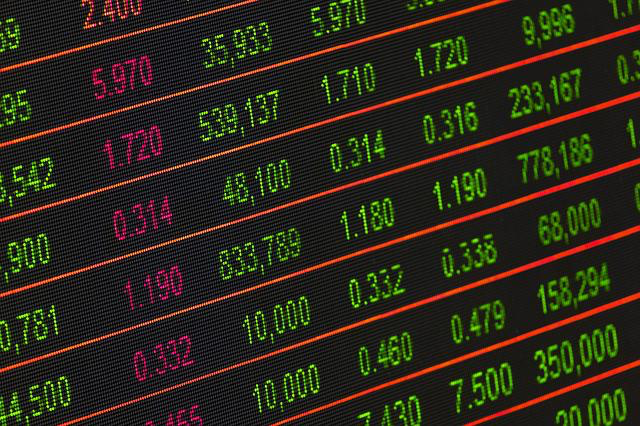Frankfurt — Germany will suffer a deeper recession than previously thought, the International Monetary Fund said on Tuesday, predicting that Europe’s traditional growth engine will be the worst performing major economy in 2023.
The German economy, buffeted by high inflation and a manufacturing slump, is now expected to shrink by 0.5 percent this year, the IMF said.
It had forecast a 0.3-percent contraction back in July.
Europe’s largest economy will be the only one of the Group of Seven rich nations not to grow this year, the updated forecasts confirm.
Germany faces multiple headwinds including “weakness in interest-rate-sensitive sectors and slower trading-partner demand”, the IMF said in its latest report.
The country – which tipped into a recession at the start of 2023 and stagnated in the second quarter – is headed for another “slight economic contraction” in the second half of the year, according to the IMF.
IMF Growth Forecast: 2024
USA🇺🇸: 1.5%
Germany🇩🇪: 0.9%
France🇫🇷: 1.3%
Italy🇮🇹: 0.7%
Spain🇪🇸: 1.7%
Japan🇯🇵: 1.0%
Canada🇨🇦: 1.6%
China🇨🇳: 4.2%
India🇮🇳: 6.3%
Russia🇷🇺: 1.1%
Brazil🇧🇷: 1.5%
Mexico🇲🇽: 2.1%
Morocco🇲🇦: 3.6%
KSA🇸🇦: 4.0%
Nigeria🇳🇬: 3.1%
RSA🇿🇦: 1.8%https://t.co/pzLIvHg5Ln pic.twitter.com/gCpVdsy8g5— IMF (@IMFNews) October 10, 2023
The Washington-based institute sees Germany rebounding in 2024, but downgraded its expectations to 0.9 percent growth from July’s 1.3 percent.
Germany’s troubles are set to act as a drag on eurozone growth, with the IMF slightly lowering its 2023 forecast for the 20-nation currency club to 0.7 percent growth.
There was better news for eurozone heavyweight France where a “catch-up in industrial production and external demand” led the IMF to predict 1.0 percent expansion for 2023, up from 0.8 percent previously.
But fellow G7 member Italy, grappling with inflation stubbornly above the eurozone average, saw its growth prediction slashed by 0.4 percentage points to 0.7 percent.
Sick man?
Elevated energy prices linked to Russia’s war in Ukraine, higher borrowing costs as a result of the European Central Bank’s interest rate hikes to cool inflation, and weaker demand from China are all taking a toll on export powerhouse Germany.
The end of cheap Russian gas imports has rattled Germany’s energy-intensive sectors in particular, provoking much hand-wringing about a potential de-industrialisation as companies mull whether to move production abroad.
At the same time, the European Union’s most populous nation is confronting structural problems such as an ageing society and a shortage of skilled workers.
The anxiety has prompted some media outlets to speculate about Germany’s re-emergence as “the sick man of Europe”, a label from the late 1990s when the country grappled with the costly fallout of reunification.
The German government will unveil its own autumn forecasts on Wednesday.
According to media reports, Berlin will say it now expects the economy to shrink by 0.4 percent in 2023, a sharp downgrade from the spring forecast of 0.4 percent expansion.
The new IMF World Economic Outlook shows growth remains slow and uneven, with widening divergences. The slowdown is more pronounced in advanced economies than in emerging markets. Germany is the only major economy in recession. pic.twitter.com/dh49rElMQ0
— Roman Pable (@RomanPable) October 10, 2023
Economy Minister Robert Habeck has said urgent action was needed to exit the doldrums.
“We need to remove obstacles to investment, clear out the jungle of bureaucracy and make things easier for entrepreneurs,” he said late last month.
Hoping to boost those efforts, the government has unveiled a 211-billion-euro ($223 billion) “climate and transformation fund” to support companies investing in modernisation and boost the green energy transition.
Chancellor Olaf Scholz has also announced a “Germany pact” that includes measures to speed up digitisation and approval processes for construction projects.
ECB board member Isabel Schnabel, who is German, said the country’s “long-term potential growth” hinged on how it tackled the various challenges.
“Germany has managed to transform itself in the past and I am confident that it will be able to do so today,” she told a Croatian newspaper last week.
Berenberg bank economist Holger Schmieding cautioned against underestimating Germany’s resilience.
The nation’s “hidden champions” of often highly specialised small and medium-sized companies had a track record of withstanding shocks and finding new opportunities, he wrote in a recent analyst note.
“The current wave of pessimism is far overdone,” he said.
Follow African Insider on Facebook, Twitter and Instagram
Source: AFP
Picture: Pixabay
For more African news, visit Africaninsider.com


